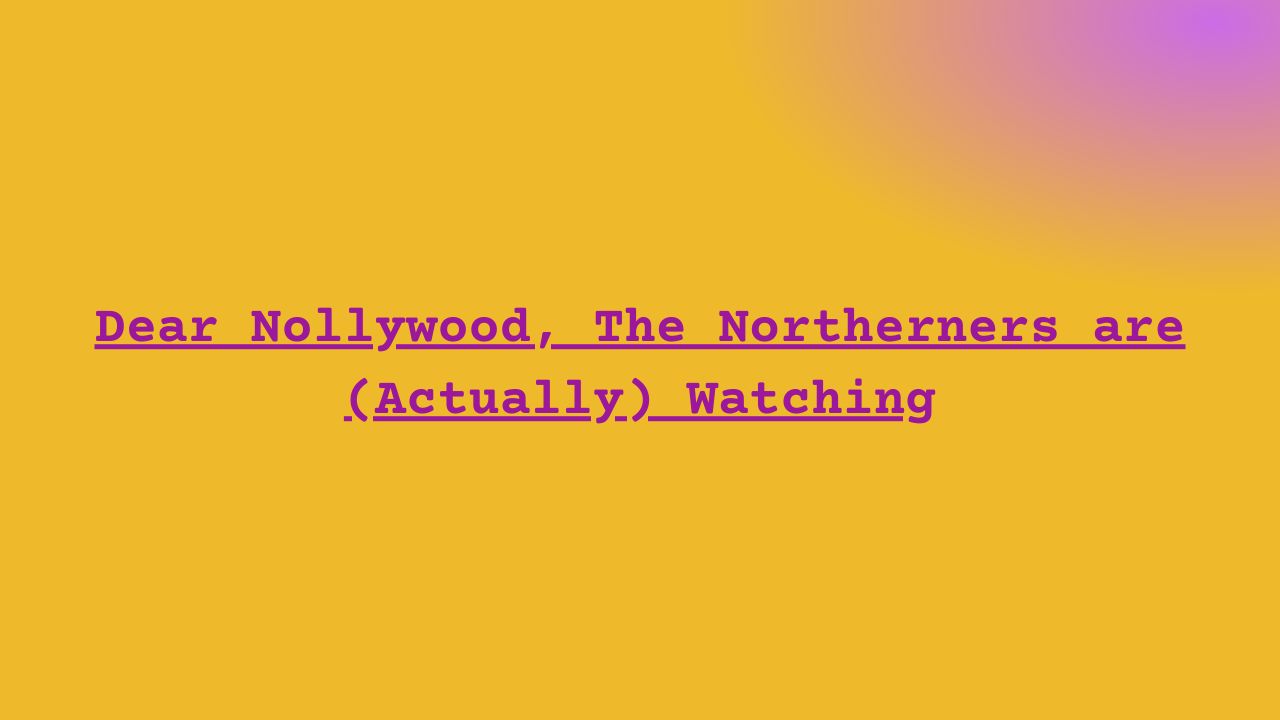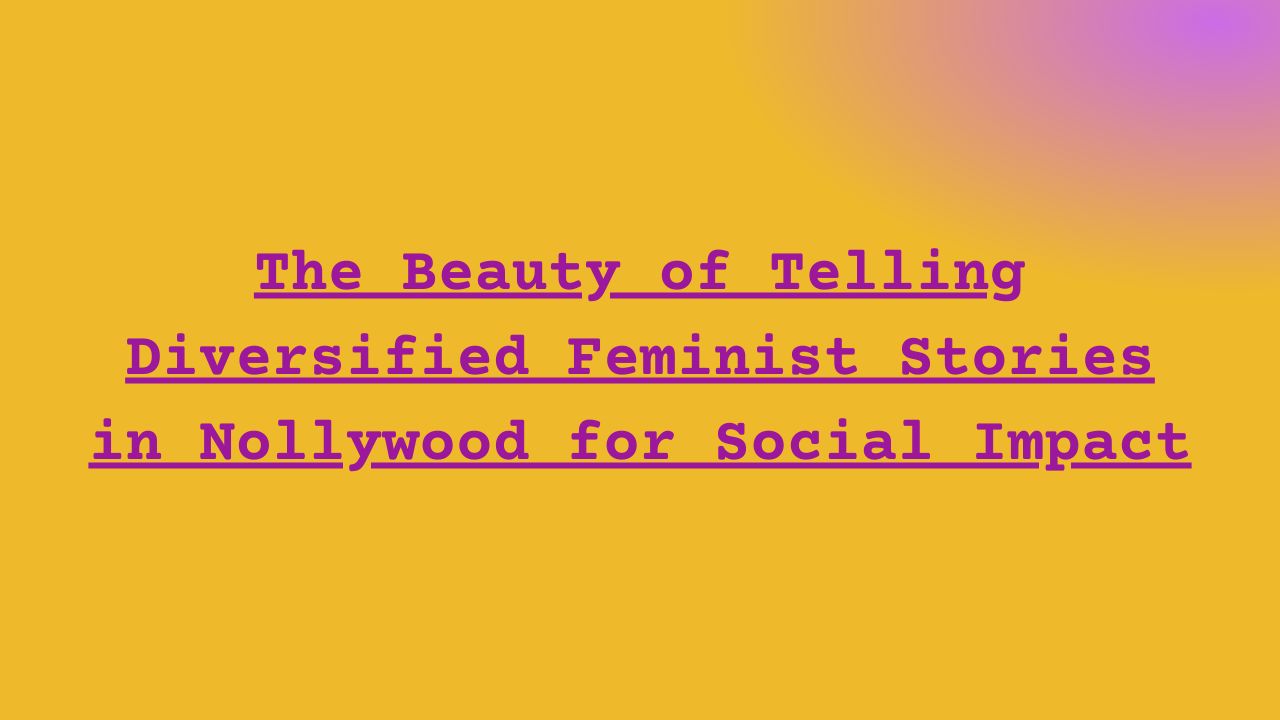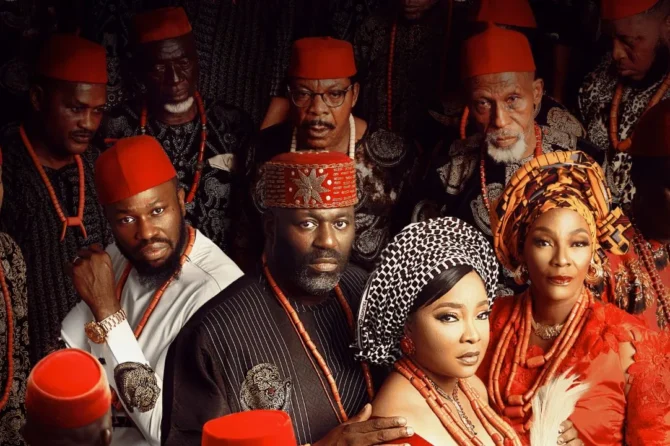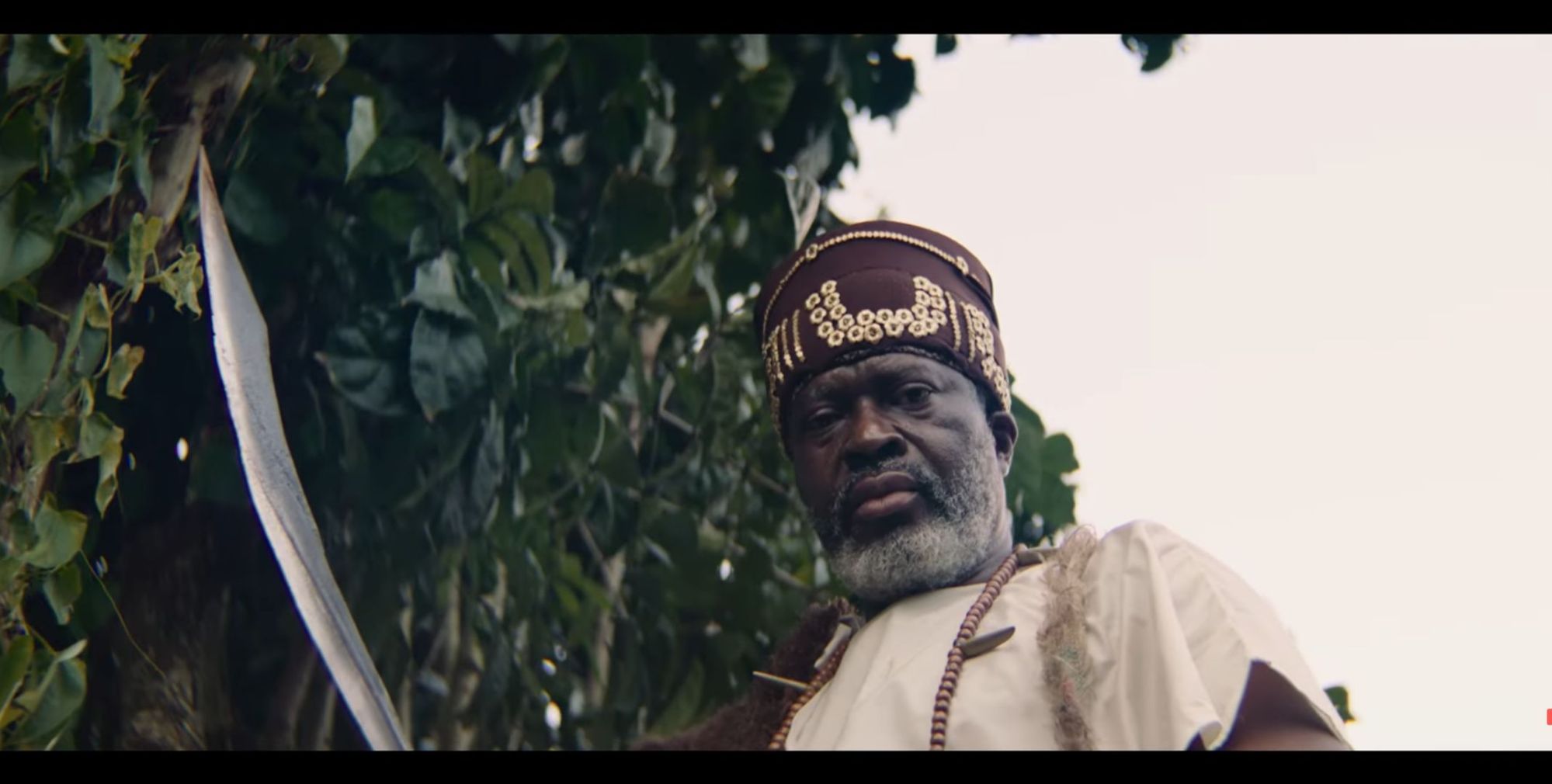Storytelling has been used to entertain, inspire and inform. This holy trinity is the ground on which storytelling is built and various films have harkened to this trinity. The popular Nollywood film Tom and Jerry featuring Osita Iheme and Chinedu Ikediezie on their mischievous adventures, Jade Osiberu’s Isoken refusing to bow to societal pressure, and Oloture’s focus on the human trafficking scene showcase these three pillars. Every story aims to have at least one of all these functions at heart. By doing this, they cause ripple effects. The preservation of time and history is one of the effects of a good story. This is why to experience an era, one has to immerse oneself in the stories of that era. For example, Nollywood Y2K is in the trends again, especially in the TikTok scene, where we see people dress up as Nollywood baddies in their videos. Their references are the Nollywood films of that time. There is a lot to be found on the emergence of Nigerian fashion in the 2000s just by watching those films, just like how in Bridgerton we learn more about the place of women during the regency era. We learn because storytelling preserves.
Furthermore, a story built on one or the entire trinity possesses the ability to spark conversations and debates on an issue. Stories have the ability to shape our thoughts on a subject. The 2012 Jeta Amata-directed film Black November tells the story of a small community in the Niger Delta who go head-to-head with the Nigerian government and an international oil company to save their land from frequent spills and excessive drilling. The story was somewhat influenced by Ken Saro Wiwa, the renowned Niger Delta activist. The film even derives its name from the month he was assassinated. The advent of this film gave more people insight as to why Niger Delta clamored for more resources. Some thought them greedy but the film helped correct several misconceptions and gave access to the sorry state of the Niger Delta. Conversations concerning the fate of the Niger Delta became popular. It also renewed activism.
This shows how the responsibility of storytelling is to reflect the reality of present times. No single stone should be left unturned. However, with Nollywood, many stones were left the same. In other words, they are involved in partial storytelling. A huge part of old Nollywood stories focused on rituals, cultism, religion and such. Though these were all issues that plagued the times, the plight of Nigerian women was not given much attention. It is no news that Nigeria condones misogyny. This is seen in the numerous online interactions, and even in Nollywood where some plots perpetuate gender discrimination. One of such plot is the 2012 film Mr and Mrs, written by Chinwe Egwuagu, where Susan Abbah played by Nse Ikpe-Etim buys into the misogynistic idea that a woman must break her back to sustain her marriage. This is because, to many, the success of a marriage lies on the shoulders of the woman. This idea teaches women to stay in uncomfortable situations instead of walking away. The aforementioned on and off-screen instances show how deeply rooted misogyny is in Nigerian society.
There are so many issues that torment the Nigerian woman, spanning domestic violence, sexual assault, health complications and the overall discrimination of the gender. Yet, their stories are not properly documented in film. Sexual assault is an infamous crime in the Nigerian scene. Just recently, Cyril Ndifon, a lecturer at the University of Calabar was appointed dean of the faculty of law and there was an outrage. Many female students took to the street to protest because the lecturer had been accused of sexual assault. Sex for grades is popular within Nigerian universities. In 2019, the award-winning journalist, Kiki Mordi, released a documentary with the same title exposing Nigerian lecturers guilty of the act. For a crime as rampant as this, Nollywood has failed to adequately capture it. Previous Nollywood films have tried to showcase this but not from a feminist point of view. The widespread problem is often positioned as one of the trials that comes with life and the stories never really lean into the problem. It is almost as if they are afraid to graze the issue. One of the few films that took a bold feminist stance on the topic is Kunle Afolayan’s Citation which presents Temi Otedola as a student who stages war against a Nigerian university when she reports a professor for attempted sexual assault. The film goes deep into the nitty gritty of the situation. It explores sex for grades, victim blaming and exposes the rape culture of Nigeria.
 Dear Nollywood, The Northerners are (Actually) Watching
Dear Nollywood, The Northerners are (Actually) Watching
 How Nollywood Can Preserve Romcoms Like Kdramas
How Nollywood Can Preserve Romcoms Like Kdramas
There are other films where Nollywood has tried to challenge misogyny. Stephanie Okereke’s Dry and Omoni Oboli’s Wives On Strike take up the decades-long issue of child marriage. The latter discusses the problem through the lenses of laywomen who decide to deny their husbands sex to force them to stand up for a girl who is being coerced into marriage. It is comically told and a bit lenient on the topic of discussion but the points are made. The former is more feminist and brings a medical perspective to the subject. Stephanie Okereke’s Dr. Zara comes in contact with a young girl who experiences child marriage and suffers from vesicovaginal fistula. The story breaks down this medical condition which is an injury to the bladder. It is an anomaly many Nigerian women are living with and the major cause is early marriage. Forty three percent of Nigerian girls are married before their 18th birthday and yet films that have lent their voice to the cause seem to be scanty. The film, Dry, might also be the first Nollywood film to orally humanize the Nigerian woman. This is achieved through Dr Zara’s monologue in the national assembly; “Before I am a woman, I am a human.” This statement is important in achieving gender equality. It calls on society to view women and men from the same lenses. None is higher or lesser than the other.
Another running patriarchal view in Nigerian society and even in the world at large is that “women can’t lead.” Genevieve Nnaji’s Lionheart and Omoni Oboli’s Love Is War both dissect this notion with Genevieve’s character taking the reins of her father’s company and Oboli’s vying for a seat in the government despite opposition from the patriarchy. The chain of events in these films forces the audience to rethink their stance on harmful gender stereotypes. Feminist honorable mentions include King of Boys and Muna. If the job of storytelling is to reflect the reality of the times, then it is assumed that there would be more stories aimed at refining the masses’ thoughts on gender. Afterall, misogyny is an ongoing epidemic.
The industry is currently experiencing an investment boom. Our filmmakers are trying to tell stories of exciting quality. However, there is a lingering fear that many are solely motivated by monetary gains. This could be the reason why there seems to be an extreme focus on particular genres at every given period, once a new formula has been pulled out from their bags. Lately, the films from Nollywood seem to be taking huge risk swings at blockbusters. There is no doubt that some of them showcase the Nigerian reality to an extent but they tell a one-sided story. A fine mix of genres that cover the topics that affect more demographics would be great and more noteworthy, even era-defining. Nevertheless, the solution to this is not the complete alienation of the more profitable stories but the inclusion of themes that showcase the realities of most if not all of the population especially that of Nigerian women who are either being groped on the street or catcalled in Yaba market
Nollywood might have failed to realize that all stories must be told, including the profitable and non-profitable ones. The controversial and non-controversial ones. The cultural and non-cultural ones. The religious and irreligious ones. Therein lies the beauty in diversified stories. As Nollywood continues to lag in the telling of feminist stories, they fall behind in their duty to inform and inspire on issues that plague many of our Nigerian women today.
Share your thoughts in the comments section or on our social media accounts.
Sign Up: Keep track of upcoming films and TV shows with Google Calendar.





